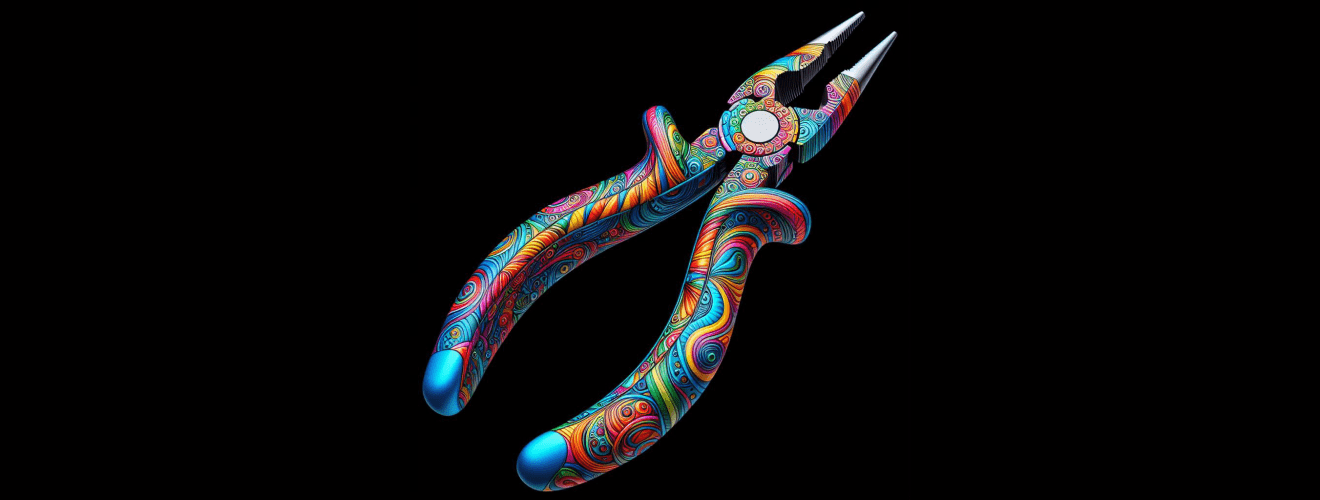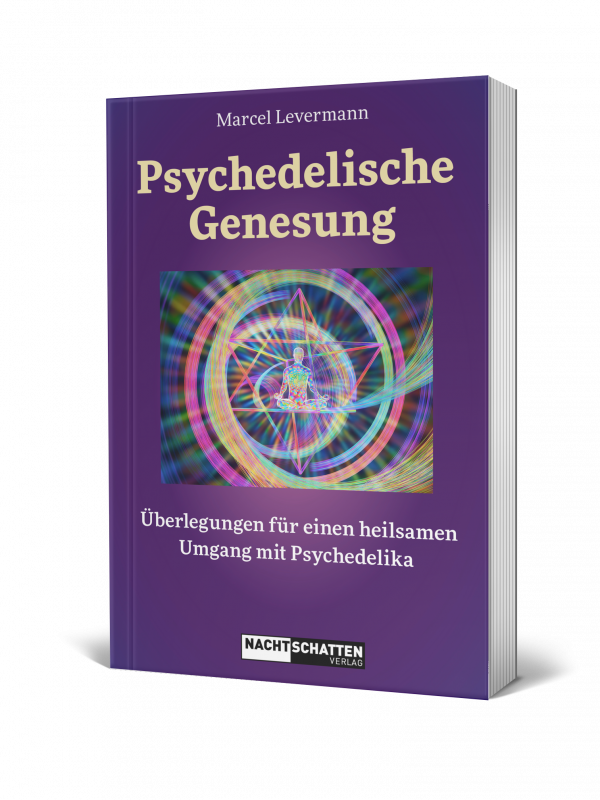The instrumentalization of psychedelics

The hippie generation lacked balance in dealing with psychedelics in the way that many were under the impression that you only had to take LSD often enough to see through everything and experience lasting enlightenment. Like all substances, psychedelics also have an end of effect. It is true that something can be opened up and triggered as the basis for a lasting change during the effect. However, temporary mystical experiences through psychedelics do not consolidate one as a master of mysticism. What is more decisive is the daily, sober willingness to expose one’s own shadow. Only those who have strong roots in the depths can maintain a high altitude.
Today’s trend of psychedelic consumption tends in the opposite direction to the previous generation. While the latter relied heavily on psychedelics in their exploration of inner spaces, today’s psychedelic interest sometimes remains superficial and without a longing for a dive into unimagined depths. In such cases, ingestion is not motivated by the desire to experience unknown dimensions, incomprehensible states of consciousness and temporary transcendence. Instead, the psychedelic is intended to serve a predetermined purpose, correspond to certain ideas of desired change and be a tool for self-optimization or performance enhancement.
It is okay to use psychedelic substances as a tool for a desired goal. Who should tell us what is right and what is wrong when dealing with them? However, if we want to exploit the potential of these magical molecules, our use of them cannot be reduced to optimizing mechanics. Otherwise, the line between rational use of an instrument and ignorant use becomes thin. A balanced approach to psychedelics involves trusting the substance or the space it opens up. It is the trust that the quality of consciousness it initiates is wiser than the limited state of the everyday ego. The willingness to surrender and allow everything that arises plays a major role.
Amazement is a central factor for a psychedelicized psyche. Furthermore, mystical experiences can occur in which even wonder is surpassed by sacred self-awareness independent of space and time. In contrast, we are now seeing a trend towards microdosing, which consumers sometimes only want to use to optimize their workflow. This goes hand in hand with the tendency to stay in a lower dose range, even during psychedelic sessions. Don’t get me wrong: Microdosing can be useful and it is right to work with doses that you feel ready for. However, if you stop at 100 microgram LSD, you are missing out on the full potential of the substance. It is simply a different attitude whether one takes psychedelics in order to experience ego transcendence in a surrender to the universe, or whether the ego determines in advance what should happen during the effect. Psychedelics can only show us unknown areas of our shadow in a transformative way if we engage with them and open ourselves to the corresponding transformation. Before we determine what we want to change with psychedelics, we should be open to the fact that we are not even aware of some aspects of ourselves.
Self-optimization and psychedelic transformation are two different developmental intentions. The former aims to create the best version of who we think we are. This way there is a self-image that is being worked towards. There is nothing categorically wrong with wanting to optimize something, but the potential of psychedelics goes beyond that. Psychedelic transformation stems from the realization that common self-images are based on inadequate ideas set up by education and societal standards. It sets out for unknown shores in order to overcome distorted self-images and open up new realities. Its goal is not to control certain manifestations, but to achieve a relaxed attitude by eliminating divisive illusions. Ideally, a bonus is the realization of the eternal perfection of the true self.
Overpriced retreat providers and superficial social media presentations on the subject do not aim at this. Their offer is aimed at people with little psychedelic knowledge in order to win them over with concrete promises of healing. Buzz words and psychological terms that are not correctly used are used to impress laypeople. Also noteworthy is the advertising of retreats with the presence of psychologists, although the positivistic study of psychology as an empirical cognitive science implies neither therapeutic training nor knowledge of psychedelic consciousness inspection. The more explicitly someone pretends to have the psychedelic experience in hand and to be able to sell it in packaged morsels, the less trustworthy they are. Of course, an optimal context can lay a crucial foundation for a good experience. However, the actual work is done by the substance in combination with the psychedelicized individual, while the sitter peacefully holds the space. A knowledgeable friend is sometimes more appropriate than someone whose offer is based on financial calculation.
Despite today’s empirical-analytical research into the psychedelic effect, it is still supported by a magical component. Nobody knows why the methoxy group, as one of the simplest atomic arrangements, turns the visual-dimensional substitution of reality by DMT into an energetic dissolution of reality by 5-MeO-DMT. No one can explain why the supposed boundary between mind and body becomes so blurred with psychedelics that sometimes a few micrograms trigger existential experiences. Professional knowledge in the field of psychedelics does not mean that one has completely understood the subject like an engineer understands a machine, nor that one can predict which deep psychic contents will emerge or be released during the individual effects and remain released after the usual afterglow. Superficial consumption goes hand in hand with capitalizing on the many promises – the full potential of psychedelics lies beyond this.
Those who have worked fruitfully with psychedelics should have developed more curiosity for the wonder of life and have more than self-interest in mind in their orientation to the world. The psychedelic experience is a gift from the great spirit of nature to human beings. If we encounter it with wisdom and reason as well as devotion, it can accompany us to unimagined heights and depths, even to the very ground of being. It does not deserve to be relegated to performance-oriented mechanics as a capitalist product.




